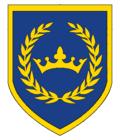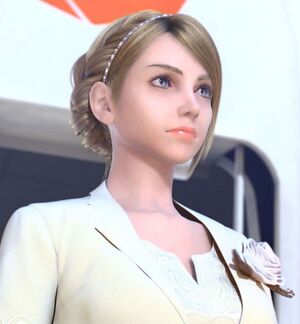Monarchy of Brumen: Difference between revisions
mNo edit summary |
|||
| Line 44: | Line 44: | ||
== History == | == History == | ||
== Constitutional Role == | == Constitutional Role == | ||
Article I of the [[Constitution of Brumen|constitution of Brumen]] establishes the monarch as the living symbol and sovereignty of the Kingdom, the use of the monarch's | Article I of the [[Constitution of Brumen|constitution of Brumen]] establishes the monarch as the living symbol and sovereignty of the Kingdom, the use of the monarch's profile in the country's currency (the Bon), is the clearest interpretation of the aforementioned article. Although no longer ruling as an {{wp|absolute monarchy|absolute monarch}}, the reigning monarch is still vested with significant executive powers that are shared with the chancellor. | ||
== Privileges == | == Privileges == | ||
== List of monarchs == | == List of monarchs == | ||
Revision as of 07:04, 19 October 2022
This article is incomplete because it is pending further input from participants, or it is a work-in-progress by one author. Please comment on this article's talk page to share your input, comments and questions. Note: To contribute to this article, you may need to seek help from the author(s) of this page. |
| Queen of Brumen | |
|---|---|
| Königin von Brumen (Brumenese) | |
 Royal Coat of Arms | |
| Incumbent | |
 | |
| Anne-Marie I since 15 April 2020 | |
| Details | |
| Style | Her Majesty |
| Heir presumptive | XXX |
| Formation | 10 June 1305 |
| Residence | Reichspalast (Official) Althaven Palace (Official) Handelstadt House (Private) |
| Appointer | Hereditary |
The monarchy of Brumen, commonly and constitutionally referred to as The Crown (Brumenese: Die Krone), is the constitutional institution by which a hereditary monarch reigns as the ceremonial head of state of the Kingdom of Brumen. It is the highest office in the Kingdom and is vested with certain executive powers which are collectively referred to as the reserve powers of the crown. In practice however the monarch is bound by convention to only act upon the advice of the chancellor. While the constitution establishes the monarch commander-in-chief of Brumen's Armed Forces, in practice it is the chancellor that directs the armed forces on behalf of the monarch through royal assent. All soldiers of the Grand Army of the Realm swear allegiance to the monarch.
In spite of its status as a ceremonial head of state, the monarch may at times exercise considerable powers through subtle means. For example, while the constitution of Brumen outlines that the monarch should provide royal assent bills or legislation approved by parliament, it does not specify when the monarch must do so. There has been times when the monarch has purposefully delayed providing their royal assent to controversial bills and pieces of legislation, prompting the chancellor and parliament to rework the bill. The current Monarch is Anne-Marie I who ascended to the throne when her father, Sebastian VII, abdicated on 15 April 2020.
History
Constitutional Role
Article I of the constitution of Brumen establishes the monarch as the living symbol and sovereignty of the Kingdom, the use of the monarch's profile in the country's currency (the Bon), is the clearest interpretation of the aforementioned article. Although no longer ruling as an absolute monarch, the reigning monarch is still vested with significant executive powers that are shared with the chancellor.